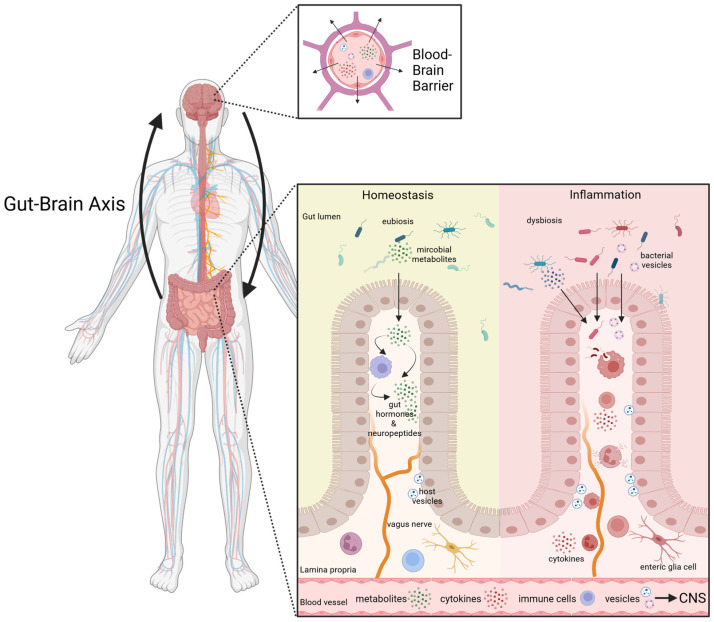Figure 1.
The Gut–Brain Axis. Emerging evidence from both clinical and experimental studies strongly indicates that the gut–brain axis plays a pivotal role in linking inflammatory conditions of the gut and the CNS. It is proposed that intestinal dysbiosis, along with the translocation of bacterial membrane products, diverse metabolites (e.g., SCFA, neuropeptides), as well as host-derived inflammatory factors in response to bacteria, exerts multifaceted influences on various aspects along this network. Factors can shuttle ether via the bloodstream or the vagus nerve and can cross the blood–brain barrier. Furthermore, a pro-inflammatory intestinal environment, often associated with increased intestinal permeability (“leaky gut”), may result in an altered communication along the gut–brain axis, potentially contributing to neuroinflammation in the ENS and CNS. Arrows indicate the bi-directional communication network linking the GI tract and the CNS. Graphic created with Biorender.com (accessed on 18 September 2023).

